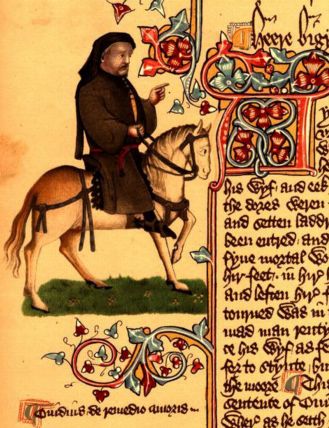The age of Romanticism
is considered to be the most remarkable age in the history of English literature within fifty years after the death of Dr. Johnson. English poetry
was once again magnificently driven by the brilliant outbust of the imaginative
genius. The rise of Romanticism needs to be seen in the context of the changes
that marked the historical and philosophical aspects of the English social
life. It must be noted that the period between 1776 and 1832 was one of the
remarkable progress and national achivements for England. Industrial
development were growing day by day. In this age of industrial progress the
Romantics rise with a view to making a balance between dehumanised men and
women.
Romanticism has been
described and defined in defferent ways. The word Romantic has been used
traditionally in oppsition to the word classicism. Classicism is considerd and
connected with the social, the formal, the intellectual and the static whereas
Romanticism is connected and concerned with the individual, informal, the
emotional and the dynamic. The Romantics believed in the absolute freedom both
in terms of formal presentation and the content. Let us descus about the
important feature of Romanticism.
Mystique of the past is another important feature for the
Romantics. Keats’s “Ode on a Grecian
Urn” is a fine example of how the
ancient past inspired the poets.The past provided all the romance and charm that the Romantic
imagination needed.
Imagination
is the soul of romantic poetry. The Romantics believed that imagination can
give shelter to a troubled mind. This very idea has been reflecled throught the
romantic poetry of different poets in this age. Through imagination the
inanimate cold world is transformed into something real and living.While
Cpleridge seeks to transform the given world through imagination. To Wordsworth
visionary world is more real than the
world of sense. For Keats imagination which leads to beauty is not a simple way
but a power by which he has made imagination more powerful and acceptable than
reality. Keats in a letter to Benjamin Baily says: “I am certain of nothing but of the
Comman
place and ordinary are the most significant
characteristics of Romantic poetry. The Romantics had intention in the ordinary
forms of life. The Romantics turned the full force of their humanitarianism
upon the simple life of the peasant (farmar), secluded workers and innocent
children who derived the sustenance of life from the luxerious profasion of
nature ready to shelter and preserve them.
Particularly Wordsworth celebrated and sang the simplicity and common
place of life. Wordsworth says,
Subjectivity
is another important feature of the Romantic poets. Subjective poetry is a kind
of poetry in which the poet goes into himself and finds his inspiration from
his own experiences, thoughts and feelings. Most of the Romantic poets are
subject in this sense. For example, Keats’s “Ode to the Nightingale” is
basically based on personal matter. His life is full of tragedy. When his
brother died he wrote this poem being annoyed with the practical world. So it
is a subjective poem. Other subjictive
poems are Keats’s “Ode to Fanny” and
Wordsworth’s Tintern Abbey etc.
Love of
liberty is another important feature of the Romantic poets. They expected both poetic and national liberty. In
poetic liberty the poets wanted to write free hand poems. They didn’t want to
be confined within the particular framework of poetry. Means rules and
regulation were not inportant feature for them.They emphasized on the subject
matter.In their writings the poets also showed a type of raction and revolt.
Use
of nature is a prominent feature of the Romantic poets. They
have frequently used nature in their poetry. But nature has taken different
shape in different poets. To Shelley nature was a poewr. To Keats nature was a
beauty and Wordsworh considered nature mystically. Coleridge treated nature
supernaturally.
Frence Revolution and Romantic poetry are related to each other. The
historical significance of the Frence Revolution of 1789 is destruction of the
old order and initiated a new philosophy of liberty. One can measure its impact
from the wide spread changes that took place in the whole of Europe including
Englad. In the first of the revolution the English Romantic poets saw the freedom for the mankind .Especially
Shelley’s poem are full of a revolutionary zeal.
It
is to be noted that
all the poets of the Romantic age were not influenced by the Frence Revolution
because,the poems of Keats, Wordsworth, Coleridge are not related with Frence
Revolution. The Romantic poets created an especial type of poetry that marked
the age an humanity where subject matter was high and lofty because they were
not confined with particular rules and regulation in writing poetry.








.jpg)













